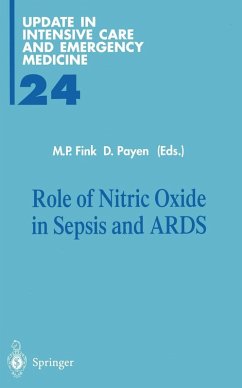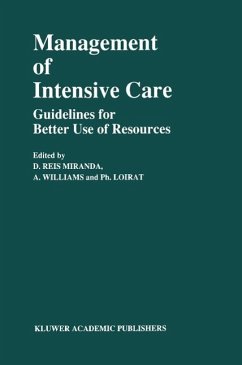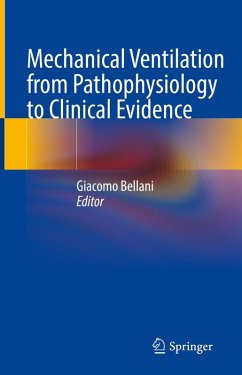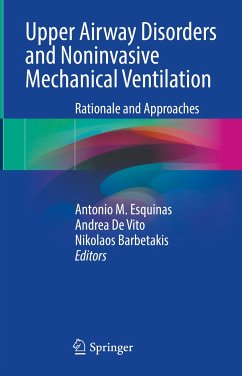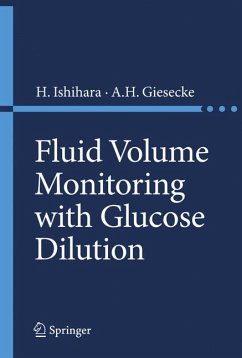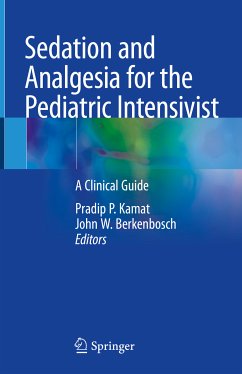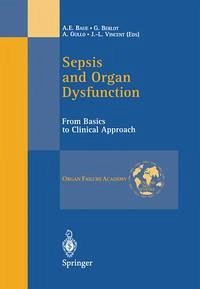
ECMO: A Practical Guide to Management (eBook, PDF)
Versandkostenfrei!
Sofort per Download lieferbar
89,95 €
inkl. MwSt.
Weitere Ausgaben:

PAYBACK Punkte
45 °P sammeln!
ECMO has in the last year advanced rapidly in its prevalence and ease of use. It is becoming the standard of care for the management of severe ARDS, however, its adoption outside of relatively few large hospitals in primarily very wealthy nations has been limited. This is in part improving as the cost of the equipment and associated resources decline, however a significant barrier to its use is the expertise required to manage the patient. There are only a few existing reference books on the topic but they suffer from being too comprehensive, too basic, too theoretical or else they are too exp...
ECMO has in the last year advanced rapidly in its prevalence and ease of use. It is becoming the standard of care for the management of severe ARDS, however, its adoption outside of relatively few large hospitals in primarily very wealthy nations has been limited. This is in part improving as the cost of the equipment and associated resources decline, however a significant barrier to its use is the expertise required to manage the patient. There are only a few existing reference books on the topic but they suffer from being too comprehensive, too basic, too theoretical or else they are too expensive for the average practitioner or hospital system to use as general reference material for training.
This book is designed to be a practical guide to the management of ECMO by the entire ECMO team from specialists to physicians. It discusses the core physiological principles necessary to the understanding of its management, but also then discusses how to practically apply these principles on a day-to-day basis. It is structured in a focused and concise manner with an emphasis on translating theory to actual equipment and patients through the use of visuals.
The book is divided into twelve individual sections that each contain various chapters. The first section provides an introduction to the book itself as well as the authors. The second section explains the history of ECMO. The third section focuses on program development while the fourth section is all about patient selection. The fifth section details physics and technology while the sixth and seventh sections break down the physiology. The eighth section describes cannulation and configuration while the ninth focuses on complications and emergencies. The remaining three sections detail patient management, pharmacology and anticoagulation and weaning and decannulation.
Written by experts in the field, ECMO: A Practical Guide to Management targets bedside providers such as physicians and mid-level providers, however it is also a useful reference for nurses and respiratory therapists on the team. While it contains sufficient advanced material to keep more seasoned practitioners engaged, it also focuses on only the necessary and practical principles to appeal to a variety of readers.
This book is designed to be a practical guide to the management of ECMO by the entire ECMO team from specialists to physicians. It discusses the core physiological principles necessary to the understanding of its management, but also then discusses how to practically apply these principles on a day-to-day basis. It is structured in a focused and concise manner with an emphasis on translating theory to actual equipment and patients through the use of visuals.
The book is divided into twelve individual sections that each contain various chapters. The first section provides an introduction to the book itself as well as the authors. The second section explains the history of ECMO. The third section focuses on program development while the fourth section is all about patient selection. The fifth section details physics and technology while the sixth and seventh sections break down the physiology. The eighth section describes cannulation and configuration while the ninth focuses on complications and emergencies. The remaining three sections detail patient management, pharmacology and anticoagulation and weaning and decannulation.
Written by experts in the field, ECMO: A Practical Guide to Management targets bedside providers such as physicians and mid-level providers, however it is also a useful reference for nurses and respiratory therapists on the team. While it contains sufficient advanced material to keep more seasoned practitioners engaged, it also focuses on only the necessary and practical principles to appeal to a variety of readers.
Dieser Download kann aus rechtlichen Gründen nur mit Rechnungsadresse in A, B, BG, CY, CZ, D, DK, EW, E, FIN, F, GR, HR, H, IRL, I, LT, L, LR, M, NL, PL, P, R, S, SLO, SK ausgeliefert werden.



